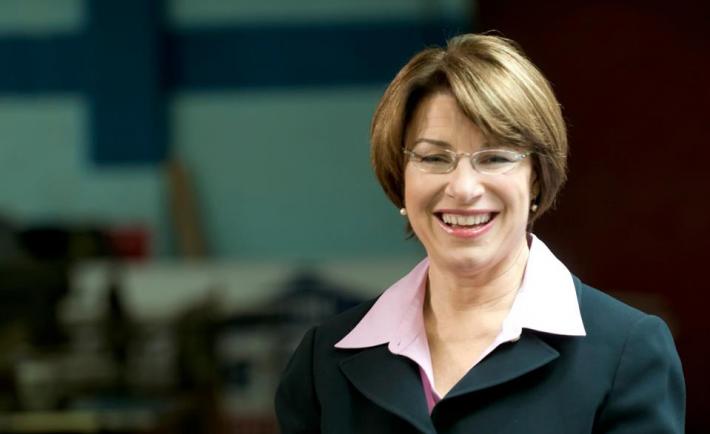We are living in a time where people are pretty down on Washington. Around the world, the U.S. Congress has become better known for partisanship than as a beacon of democracy. Still, I am proud to be part of a bipartisan group of women senators who are a part of the solution, proving that civility and effectiveness in politics is not a thing of the past.
We have forged strong friendships that go beyond political divisions, holding regular bipartisan dinners to connect with each other on a personal level. More than being friends, we are getting things done.
The government shutdown in 2013 was one of the lowest points for Congress, and the American people responded forcefully and said: “We have had enough.” Senator Susan Collins and I, along with twelve other senators, half of whom were women, came together to help find solutions to end the shutdown. Senator Patti Murray then led the effort in the Senate to forge the budget agreement, and Senator Barbara Mikulski worked to pass the spending bill.
This kind of cooperation should serve as a model for more bipartisan work. Senator Debbie Stabenow led the effort to pass the bipartisan farm bill. Senator Barbara Boxer led the effort to pass the transportation bill. The Senate women worked together to pass the Violence Against Women Act with strong bipartisan support. All twenty women senators came together to call for a hearing on sex trafficking, which helped lead to the passage of bipartisan legislation that included a provision I authored to help ensure that minors who are sold for sex are treated as victims, not prosecuted as criminals. And just last month, Senators Lisa Murkowski and Maria Cantwell led the effort to pass the bipartisan energy bill.
Courage, in my view, is standing next to someone you don’t always agree with and working with them to tackle problems and find solutions. My female colleagues in the Senate are among the most courageous people I know. Still, many voters have a hard time thinking of women in these leadership roles.
Throughout U.S. history, there have been 1,917 male senators and only 46 women senators. Women currently make up just 20 percent of U.S. senators. We clearly have some catching up to do.
Working collaboratively is not a challenge unique to the United States. Around the world, legislators must work together across party, ethnic and political lines. Abroad, just as it is here at home, women play a key role in meeting this challenge.
That’s why I’m looking forward to the opportunity to speak at the National Democratic Institute’s Madeleine K. Albright Luncheon on May 18 to celebrate women’s political leadership around the world. I hope you will join me at the Luncheon; to do so, click here to purchase your ticket.

